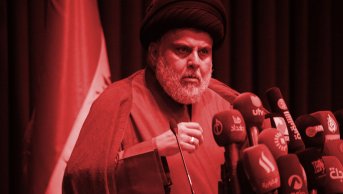The Sulaymaniyah Question

In 1783, after the Ottoman Governor of Baghdad Suleiman Pasha appointed Ibrahim Bey, a member of the Baban family, as the ruler of Baghdad, Ibrahim Bey founded a new city and named it Sulaymaniyah (Sanjak) after the name of Suleiman Pasha, and today the province, which is under the control of the Iraqi Kurdistan Regional Government (KRG) within the federal structure of Iraq, is at the top of Türkiye’s threat perceptions. However, Sulaymaniyah, as one of the most important sanjaks of the Ottoman Empire and one of the important points of resistance against the British occupation in 1918, wanted to join Türkiye against the British mandate. Yet, it is ironic that today it has become the main shelter and operational area of the separatist terrorist organization PKK, as it targets Türkiye’s political and territorial integrity.
The PKK's settlement in and around Sulaymaniyah is nothing new. In the early 1980s, PKK terrorists started receiving military training together with Palestinian groups in the Syrian-controlled camp in the Baqaa Valley on the Lebanese border with Lebanon. In 1982, after the Israeli operation in the Baqaa Valley, the PKK sought a new area for itself when all opposition groups in the Baqaa left as a result of the agreement between Syria and Israel. Although the Syrian regime wanted to provide a new area for the PKK, the northern part of Iraq was chosen instead of Syria, which was not physically suitable for guerrilla warfare, and thus the PKK began to settle in and around the Qandil Mountain, located within the borders of Sulaymaniyah, in 1982. While those who could be characterized as the PKK's "leadership cadre-brain trust" were kept in Syria, the militant cadre was sent to Qandil. Thus, Qandil became the "main base" for the PKK, and the presence of the terrorist organization spread from here to the mountainous area parallel to the Turkish border.
The post-1980 instability in Iraq and the conflict-ridden environment in the region also played a major role in the PKK’s expansion. This is because;
- 1980-88 Iraq-Iran war,
- The 1991 Gulf crisis and the declaration of a no-fly zone in northern Iraq,
- Conflicts between the KDP and the PUK in 1994,
- The US invasion of Iraq in 2003 and the chaotic situation in the country,
- The Syrian crisis of 2011,
- The takeover of territory in Iraq by the terrorist organization ISIS in 2014 and its aftermath,
- The “independence referendum” in the KRG in 2017 and the subsequent political instability between the KDP and PUK,
- The leadership struggle within the PUK after Jalal Talabani’s death and the influence of an “adventurous” leader (Jalal Talabani’s son Bafel Talabani) within the PUK are the most important developments that have enabled the PKK to maintain its existence today.
As a matter of fact, the PKK’s presence in Türkiye, whose main goal is to divide Türkiye, has been severely limited thanks to the effective fight against terrorism, while significant progress has been achieved with the Claw Operations in northern Iraq since 2021. Nevertheless, the shelter opened up across the border, allowing the PKK to exist. Especially after the Syrian crisis, the PKK-affiliated PYD-YPG organization and its efforts to transform the US-backed Syrian Democratic Forces (SDF) into a "legitimate actor" provide the PKK with space and flexibility. Although the US does officially recognize the PKK as a terrorist organization, it supports PKK-affiliated groups and thus indirectly aids the PKK. However, as of today, the PKK's strongest support and presence are within the sphere of influence of the PUK led by Bafel Talabani. In particular, the PKK's situation in and around Sulaymaniyah, the PUK's historical area of control, has transformed from a mere presence into an area of control and open influence. The previous discourse that the PUK was using the PKK has now turned into a process in which the PKK is using the PUK. As a matter of fact, it is seen that the sanctions imposed for some time, such as the suspension of flights over Sulaymaniyah and the closure of the airspace, have not been effective in weakening the PUK's relationship with the PKK. For this reason, from Foreign Minister Hakan Fidan to President Recep Tayyip Erdoğan, the issue of Sulaymaniyah has been voiced at the highest level, and intense security diplomacy has been carried out with Iraq. At this point, it is possible to say that Türkiye still prefers negotiation and persuasion. The PKK's control and influence in and around Sulaymaniyah seem to have gone beyond Türkiye’s tolerance limits. It seems that if Iraq, the KRG, and the PUK do not take measures and change their attitude, new developments centered on Sulaymaniyah may occur.
This article was first published on Milliyet website, on 28th February 2024, with the title “Süleymaniye Meselesi”








